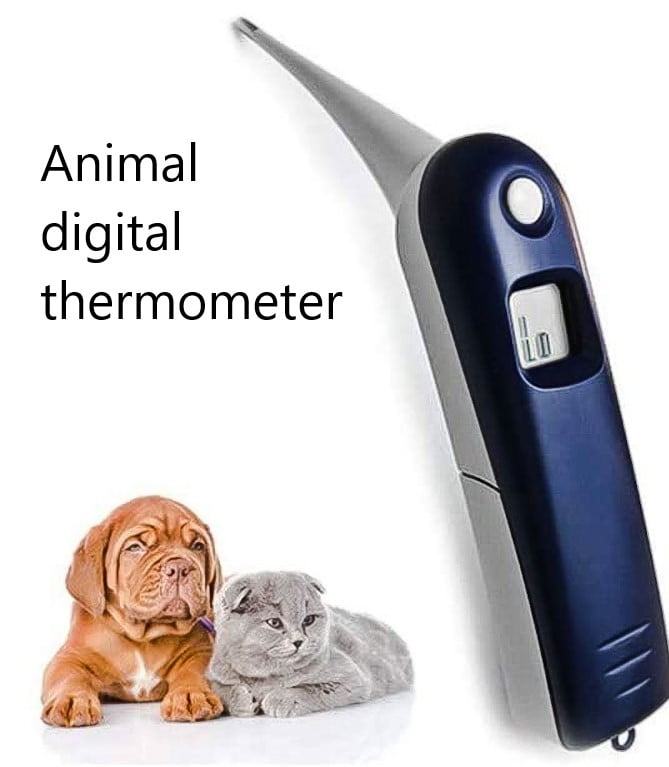First things first: in the USA, according to the Humane Society there have been 49 confirmed cases of Covid-nineteen in cats and 35 confirmed cases in dogs. As there are around an estimated 94 million domestic cat companions in the US, you can see that this is not a problem that people should get wound up about. At the moment it seems that the chances of your cat contracting Covid-19 are extremely, almost infinitesimally small.
 |
| A high temperature is the first sign that your cat or dog might have Covid. Image: PoC. |
The best way to protect your cat, I would have thought, is to protect yourself by following the well-publicised procedures. And in the USA a high percentage of cat owners keep their cats inside full-time which must protect them from this disease. That said, Newsweek have written about the nine signs that your cat has Covid so I will reproduce them here just for the sake of completeness. I think it's nice to know these just in case you and your cat are unlucky.
It's probably worth saying that one of the signs of Covid in people is a lack of taste and smell which are two symptoms that we can't know that I cat suffers from because the only way of finding out is to ask your cat! Perhaps we should assume that those symptoms are also present (which may affect their appetite) to which you can add the following:
- A fever. A fever is when the body temperature exceeds the normal temperature for an adult cat which is between 100-103° Fahrenheit with an average of 101.5 degrees F. How do you tell that your cat has a fever? Well of course you can measure the temperature and I have a page on that was you can see by clicking here. But what are the outward signs? A veterinary website tells us that they are: loss of appetite, depression, lack of energy, decrease drinking, decreased grooming, rapid breathing and shivering;
- Coughing. The should be persistent coughing which will be different to the sort of sound a cat makes when the vomiting up a hair ball which is not coughing at all;
- Difficulty in breathing with shallow breath;
- Lethargy. Lethargy is a classic symptom of a cat feeling ill and it should be noticeable to most cat owners who are reasonably emotionally close to their cat;
- Sneezing;
- Runny nose;
- Eye discharge;
- Vomiting;
- Diarrhoea.
There has been quite a lot of talk about cats and dogs getting Covid which I think is out of an abundance of caution because there is precious little evidence that pets transmit the disease to people living in the same household.
It's a shame that they get it at all because this is a human-created global problem. It is through human carelessness that this has happened although the World Health Organisation is still trying to find out where it started without the cooperation of the Chinese! That I think tells us a story.
If the above signs are present then the usual procedures concerning people should apply to a cat or dog. This means isolating the animal but before that you have to get confirmation from a veterinarian that your dog or cat does indeed have Covid. Nothing stupid should happen. No one should panic or do anything which would harm the companion animal in any way.
P.S. in Siamese and other pointed cats if they have a temperature it may affect the color of their non-pointed coat. It might be lighter.





